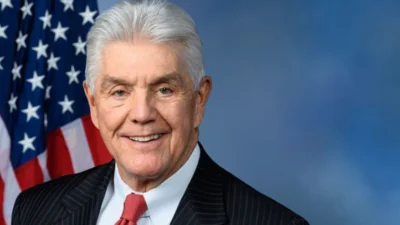Energy and Commerce Committee Chairman Frank Pallone, Jr. (D-NJ) wrote to 13 internet service providers today expressing deep concerns over reports of providers engaging in abusive, misleading, fraudulent, or otherwise predatory behaviors through the Emergency Broadband Benefit (EBB) Program and the Affordable Connectivity Program (ACP). The Chairman demanded answers from Altice USA, AT&T, Charter, Comcast, Cox Communications, Dish Network, Excess Wireless, Frontier, Lumen/CenturyLink, Maxsip, Q Link, T-Mobile, and Verizon.
“In crafting EBB, and its successor ACP, Congress explicitly outlined requirements designed to prevent waste, fraud, and abuse, maximize the enrollment of eligible households, and ensure that consumers are protected in the process,” Pallone wrote to the executives of all 13 internet providers. “Importantly, Congress incorporated lessons learned in the emergency implementation of EBB to fully inform the creation of ACP, including by enhancing safeguards to preserve program integrity and ensuring that ACP would truly benefit consumers and not leave them vulnerable to predatory schemes or misleading practices. That is why I am deeply concerned by reports that some providers may not be adhering to the requirements of the program.”
ACP, like its predecessor EBB, provides eligible households with a discount on the monthly cost of internet service – service that is more essential now than ever as Americans rely on it to be able to telework, attend telehealth appointments, participate in virtual learning, and connect with loved ones. Over 14 million Americans are currently enrolled in ACP, which was established in the Bipartisan Infrastructure Law enacted in November of 2021.
In his letters, Pallone pointed to reports detailing problems customers have faced, including either having their benefits initiated, transferred to a new provider, or changed to a different plan without their knowledge or consent. Other customers have reported a delay in the application of the benefit, or a requirement to opt-in to future full-price service, which has resulted in surprise bills that have been sent to collection agencies. There have also been reports of aggressive upselling of more expensive offerings, and other harmful and predatory practices.
“Recent complaints allege actions that are now explicitly prohibited by Congress and the FCC,” Pallone continued in his letter. “I take these consumer complaints seriously and want to ensure that all providers are abiding by the law so that all eligible consumers can truly benefit from these programs.”
To assist with the Committee’s oversight of the EBB and ACP programs and ensure their continued success, Pallone requested a host of information, including:
- The number of beneficiaries each company has enrolled;
- Descriptions of the process used to enroll new consumers;
- The number of complaints, and the nature of those complaints, each company has received regarding their administration of these programs;
- The process each company uses to resolve complaints;
- What awareness each company had of instances, if any, where the benefit was applied late resulting in erroneous consumer bills;
- What, if any, prohibitions the companies have put into place on upselling; and
- What, if any, protections or trainings the companies have implemented to ensure the faithful application and administration of these programs.
- Altice USA
- AT&T
- Charter
- Comcast
- Cox Communications
- Dish Network
- Excess Wireless
- Frontier
- Lumen/CenturyLink
- Maxsip
- Q Link
- T-Mobile
- Verizon









